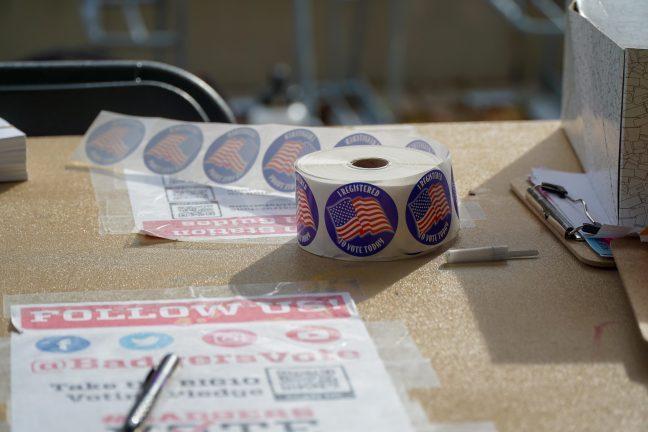The Wisconsin Supreme Court ruled last Friday the state elections commission does not have to purge voters from rolls if they are flagged as potentially moved.
The court’s 5–2 ruling said the likely movers in Wisconsin would remain activated voters and can vote in major elections such as the 2022 contest for governor and U.S. Senate, according to the Milwaukee Journal Sentinel. Based on reporting from the Associated Press, there are about 69,000 people in this group.
Conservative-leaning Justice Brian Hagedorn wrote the majority opinion of the ruling. Hagedorn was joined by conservative-leaning Chief Justice Patience Roggensack and liberal-leaning Justices Ann Walsh Bradley, Rebecca Dallet and Jill Karofsky, as mentioned in the Wisconsin State Journal.
“As the surrounding context, definitions, and text make clear, these duties are the responsibility of municipal clerks and a municipal board of election commissioners. The Commission has no mandatory duties under [state law] § 6.50(3), and therefore cannot be compelled to act under this subsection,” Hagedorn said in the review of the lawsuit.
According to the Wisconsin State Journal, conservative Justices Rebecca Bradley and Annette Ziegler dissented the majority opinion and stated the commission should purge the voters.
The removal of likely movers from the rolls has been in debate for over two years before it reached the Wisconsin Supreme Court.
In 2019, the Wisconsin Institute for Law & Liberty claimed the state elections commission should have purged the voters from the rolls when individuals did not respond to the letters sent by the WEC that required the voters to update their address. Out of approximately 232,000 letters sent to likely movers, 209,000 did not respond to requests.
GOP Donor asks Wisconsin Supreme Court to strike down statewide mask mandate
WILL is a conservative law firm whose mission is to promote the public interest in political and public issues in Wisconsin.
An Ozaukee County circuit court judge made the first ruling and favored the conservative argument, stating the election commission should purge the voters who were likely moved. But a state appeals court reversed the ruling in February 2020, according to the Associated Press.
In September 2020, the Supreme Court heard arguments and it issued the ruling last Friday. In a statement released by WILL last Friday, WILL President Rick Esenberg expressed his disappointment in the high court’s decision.
“This is a disappointing setback for those who expect Wisconsin state agencies to follow the law,” Esenberg said. “The Court held today that the legislature created a duty and failed to provide an effective way for that duty to be carried out or enforced by voters. We respectfully disagree.”
The Wisconsin Elections Commission said on its website it received the decision of the Wisconsin Supreme Court and it may release a comment in the future analyzing it.














